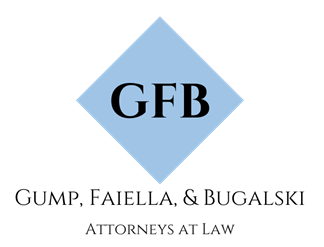CLIENT LOGIN
×Property Claims
Wind, water, fire, hail, storms, and other natural causes, can damage your most valuable assets, your home, or your business. When your home or business has been damaged or destroyed you need to make a claim under your insurance policy to obtain recovery for your losses.
Our Columbia insurance attorneys can help you navigate the claim process, as well as advise you regarding all the benefits that may be available under your particular policy. Many insurance policies provide other valuable benefits under residential policies that may go unnoticed or unclaimed. Unfortunately, insurance policies can be difficult to read, and the average policyholder does not understand how to properly read the insurance contract, or how the available coverage applies.
Taking Responsibility
Although insurance companies should, they often do not clearly disclose all of the available benefits available under a policy. Under your insurance policy, in addition to repairing or replacing the property yourself, you may be entitled to additional benefits that will help you maintain your lifestyle until you can move back into your home or find a replacement property.
Our Columbia attorneys work on a contingent, or percentage fee on the amount you receive on your claim from the insurance company. So a policyholder with a valid claim can afford an insurance attorney to represent them.
Tornado, Windstorm or Hailstorm
If your property has been damaged from a tornado, windstorm, or hail, you have a claim under your insurance property coverage. If your insurance company has denied your claim entirely, or is not offering you the full amount you deserve, you should consult with our storm insurance attorneys. Unfortunately, many insurance companies deny valid claims from storm victims. For example, an insurance company may try to underpay claims, citing deterioration of the property, evaluating your property in unfair ways, or failing to disclose the full range of benefits under your policy.
It is important when making a claim to insure that you document all of the damage that occurred and file a timely and prompt claim. If you are having trouble with the claim process, or do not know what you may be entitled to receive, you may need assistance. If the company has delayed a payment or denied your claim, our attorneys can help.
After you have suffered damage due to a storm, it is important to take steps to insure that you protected your ability to file an appropriate claim. Below are some steps to help secure the necessary information so that you can properly protect your rights.
Inspections & More
Inspect both the exterior and interior of your house, as well as outbuildings and other structures such as pools, playhouses, exterior garages, sheds, and fences.
Take pictures after the storm event to document your losses. Take photos from a 360° view all around your home and other structures that are damaged. Photograph every room and each item that is damaged. If you have pictures of the property prior to the damage this would be helpful in determining the previous condition.
Do not take pictures during a storm event if it in any way endangers your health or life.
To the extent possible, protect against future damages by covering up any open windows or roof structures to prevent additional weather damage. Insurance companies sometimes try to deny losses based on your failure to mitigate additional damages that could have been preventable.
Seek alternative housing if your home is unsafe.
Reporting Your Losses
Report your losses to your insurance company as soon as possible.
In reporting your losses to the insurance company document your conversation in writing. You should note the time, date and topic discussed in any conversations on the phone. It is best to limit phone communication and correspond with the company by writing or through email so that appropriate records can be taken. Make sure that you submit your claim in writing.
After consulting with your company, check into contractors and start getting bids for repairs. Hire reputable contractors for the repairs and avoid companies that do not have a history in your area and are not registered with local agencies, such as the Better Business Bureau.
If the insurance company requests any documentation from you, you should cooperate with the company’s reasonable requests; otherwise, you may be accused of failing to cooperate with the insurance company.
Ask the company to disclose all benefits per the terms of the policy, and if you do not understand the terms of the policy, you should send a written letter to the insurance company asking for an explanation of the benefits and an answer to your questions.
Powered by



